Under Iowa law, accident victims may seek financial compensation for economic losses from any individual or person who negligently hurt them. After a car wreck, for example, you might sue the driver if they were distracted or drunk when they hit you. Or you might sue the owner of a property if they were negligent about fixing a hazard, or a dog owner when their pet bites you. As part of a settlement, you can seek financial compensation for your medical bills.
But how do you pay for this care in the first place? Negotiating a settlement takes months—sometimes even a year—and you need medical treatment right now. Below, we identify how you can pay for medical care so that you can fully recover. Speak with a Des Moines personal injury attorney with our firm if you have questions. Our goal is to be available to our clients 24/7.
Method #1: Use Your Health Insurance
Do you have health insurance? It might be an employee benefit through work, or perhaps you purchased individual insurance on the ACA exchanges. Other people are on Medicaid or Medicare. So long as you have personal insurance, you can use it to receive treatment after an accident.
Of course, your insurer will have a right to be reimbursed for whatever they pay if you obtain a settlement for the accident. As an example, you might need $20,000 in medical care after a dog bite, and you use your health insurance. After paying your deductible and copays, the insurer covers $15,000. When you get a settlement, the insurer is reimbursed for this $15,000.
What happens if you don’t win your personal injury case? Then they have no way to collect.
Method #2: Pay out of Pocket
Anyone without insurance might need to pay the whole amount out of pocket. You might even use a credit card to pay for treatment. It’s critical to begin receiving medical assistance as soon as possible so you can improve your condition.
Talk with a provider. They might let you establish an installment agreement to pay your bill a little each month. Remember that a hospital cannot refuse to treat you. They must get you stabilized, even if you lack insurance.
Method #3: Use Medical Payments Insurance
Medical payments insurance—called “med pay”—is optional insurance in Iowa. Many people use it to pay the deductible for their health insurance. But if you don’t have insurance through work, you might use the entire policy amount for emergency medical care.
As mentioned, this is optional insurance. You might not have any coverage. Go through your paperwork to see if you bought some. It is sometimes called “personal injury protection” coverage, or PIP for short. Med pay benefits should be no-fault, so it doesn’t matter who is to blame for the wreck.
Method #4: Your Employer Should Pay for an On-the-Job Injury
If you were hurt at work, then you should notify your employer. They should carry workers’ compensation insurance, which can pay for medical treatment for any on-the-job injury. Workers’ compensation is not based on fault. So long as you were working at the time, you should be covered.
Your employer has the right to decide which doctor you see for treatment. That’s one reason you should tell them as soon as you are injured. They might direct you to the company physician or have you pick a doctor from a list within a certain network.
Method #5: Find a Doctor to Provide Care on a Lien Basis
A doctor might be willing to provide treatment in exchange for a lien. Essentially, this is similar to what your health insurance does. A lien is a right to payment out of any proceeds from a future settlement. Some doctors in Iowa are willing to provide care to people hurt in accidents because they know you might win a settlement, in which case they will get paid.
Not every doctor is willing to provide care this way. There’s a risk you won’t win your case, in which case the doctor is probably out of luck and ends up with $0. However, it’s an option for some doctors if they think your case has merit.
Keep Medical Bills Related to Your Accident
To help your personal injury case, please retain the following documents:
- Hospital and doctor’s bills
- Receipts for prescription drugs, crutches, or wheelchairs
- Health insurance statements
Show these documents to your lawyer. We can use them to estimate the amount of compensation you should receive for medical care. This evidence is necessary when negotiating, even if a health insurer or provider has a lien on the proceeds.
You can’t double dip when it comes to medical bills. That is, you can’t have the at-fault defendant pay your insurer for medical care and then give you an equal amount for medical treatment. They don’t have to pay twice. However, you should receive compensation for pain and suffering and other losses, which are yours to keep.
Can Our Des Moines Personal Injury Lawyers Help?
Yes. We are experienced assisting accident victims from the moment they are hurt. Call our law firm to talk. We might point you in the direction of a doctor who treats patients while accepting a lien in exchange. We can also negotiate with your health insurer if they are trying to take too much of your settlement. They are entitled to reimbursement for medical bills but not other parts of your settlement, such as compensation for pain and suffering.
If hired, we will handle all aspects of your case, including negotiations. It’s critical to have medical bills fully compensated. The cost of care has skyrocketed. If you aren’t to blame for the accident, you shouldn’t have to shoulder these bills.
Call us today. We can meet anywhere from our offices in Iowa City and Waterloo. If necessary, we will come to you. We believe in being available 24/7 to accident victims and their families, so don’t hesitate to reach out.
